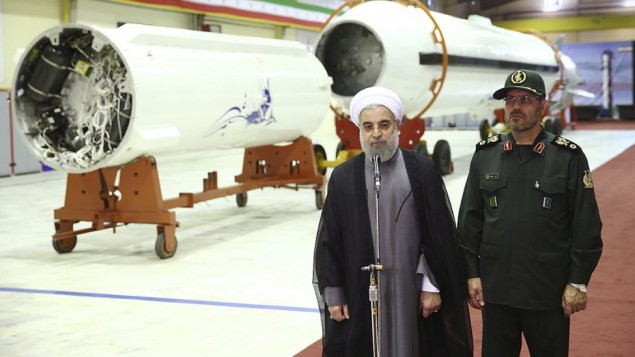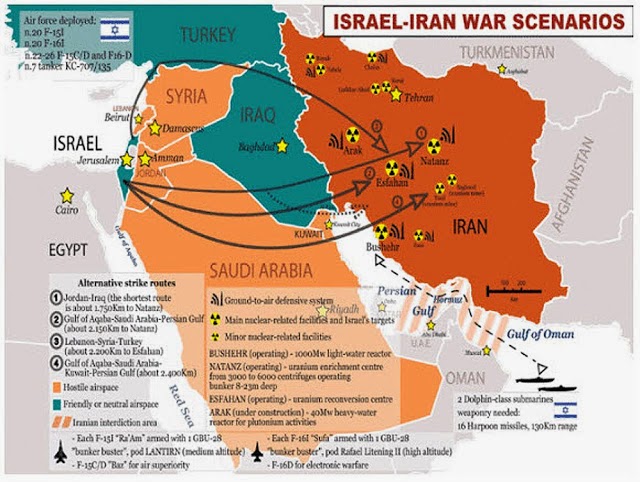Urgent Issues for Congress: Zika, the Islamic State, Iran ransom, Turkey coup, N. Korea …
August 4, 2016, President Obama held a news conference where he endeavored to reassure the American public. It was the usual political rostrum at the White House with the Washington press corps assembled to hear the President and engage in questions dealing with a host of emerging problems both internationally and domestically. Watch this YouTube video of the President’s August 4, 2016 White House Press Conference.
This White House Press conference was held in the midst of an especially troubling Presidential Campaign pitting his former Secretary of State Democrat nominee, Hillary Clinton, against Republican New York real estate mogul, Donald Trump. Because of the latter’s tweets and ex cathedra declarations at rallies and press conferences President Obama declared him allegedly temperamentally unfit to be Commander in Chief. This on the cusp of both candidates eligible to receive courtesy national security briefings. In Clinton’s case, her role during the Benghazi episode in September 2012 and the email scandal following State Department FOIA requests and Wiki leaks releases raised questions about the credibility of her responses during campaign rallies and media interviews. This despite endless hours of her providing testimony and that of FBI director James Comey before the House Special Benghazi Committee chaired by South Carolina Republican US Representative, Trey Gowdy. Trump, according to the President in an unprecedented political campaign comment, has displayed a fundamental lack of background in national security issues. Especially concerning were his admiration for Russian President Putin, despite the latter’s seizure of Crimea and Eastern Ukraine. There is the encroachment on ‘near enemies’ in the NATO Atlantic alliance: the Baltic States of Estonia, Latvia, Lithuania and Poland.
The President was asked by the assembled press corps about revelations from a series of Wall Street Journal reports about $400 million of foreign currencies strapped on pallates in a cargo plane last January and flown to Tehran, despite concerns raised by his own Justice Department. He All while another airplane waited on the ground for hours with four American hostages aboard told by Iranians they awaiting a “money plane” so they could be released to fly home. There were also questions about the threat of the Zika virus in the US, Puerto Rico, and the Caribbean given the start of the Rio, Brazil Olympic Games. There were other news stories about returning US military with possible infections, as well as Congressional resolution of the impasse over funding for completion of three promising vaccines. There were also concerns raised about the latest launch of a North Korea missile that flew 600 miles, landing less than 150 miles off the main island of Japan. That raised questions about Japanese, South Korean and most importantly, Continental US Missile defense. The missile defense system virtually incapable of assuring protection of the US homeland. Then, there were emerging concerns expressed about 60 to 70 over age B-61 nuclear bombs at the NATO base in Incirlik, Turkey. This came amidst a purge of the country’s military by President Erdogan following a failed coup and his demand to the White House seeking extradition from the US of former Islamist ally, Sheik Fethullah Gulen.
On the following morning, August 5th, despite the monsoon rains that continued to drench the Phoenix area and the entire Four Corners region, Lisa Benson and this writer were engaged in recording the Sunday, August 7th’s Radio program for the weekly eponymous national security radio show. Our guests on this 200th program were Dr. Jill Bellamy, renowned bio-defense expert and member of the UN Counterterrorism Task Force and Dr. Stephen Bryen former Reagan era Pentagon defense official and policy expert and senior fellow at the American Center for Democracy.

Dr. Jill Bellamy
The Zika Threat
Bellamy spoke convincingly about the Zika threat in Brazil, Florida and the Caribbean. She noted the necessity of the World Health Organization, the CDC the US Congress and groups like the World Bank to fund vaccine development and military service personnel and dependents with health protection. She did not believe that the US CDC could rely on reprogramming of Ebola vaccine funds to complete development and clinical trials of three Zika vaccine candidates. Bellamy had warned about the emerging Zika threat seven months earlier on a Lisa Benson Show. Zika and other infectious tropical diseases like Dengue fever that are mosquito borne keep on emerging and re- emerging. She noted that the impact on infants born with micro-cephalic small head conditions could place enormous burden on families and insurance companies, potentially for decades. She said we have known about the Zika virus for over 40 years. Dr. Bellamy believes that US military personnel and their families may have more preventive protection during pre-and post deployment phases. Lisa Benson noted the increase in women infected with the Zika virus since first reports emerged in May. Dr. Bellamy noted the US CDC warning to pregnant women traveling to Florida. She did not believe that current mosquito control measures especially in south Florida and Puerto Rico would effectively curtail exposure to possible Zika infections. She noted that European countries appear less concerned about the spread of Zika than the US and other countries in the sub tropical zones of the Western Hemisphere and globally.
Benson reminded that Dr. Bellamy had also addressed the lack of an effective radiation sickness antidote. She revealed threats by ISIS cells in Belgium and the Netherlands to intrude on nuclear research facilities to obtain radioactive materials for construction of explosive dirty bombs. Both countries have distributed packets of iodine tablets to their respective populations as precautions.

Dr. Stephen Bryen
The problematic nuclear weapons at the Incirlik NATO airbase in Turkey
Dr. Bryen, the husband of program Advisory Board Member Shoshana Bryen, addressed the dangers of not\ permanently retiring those over age nuclear bombs at the NATO base in Incirlik, Turkey. These weapons he pointed out contain plutonium, tritium and other fissile materials. They are gravity bombs and there are no aircraft based at Incirlik capable of dropping them. During the 1974 invasion of Cyprus, these nuclear weapons were redeployed and subsequently returned. The best that could be done would be to permanently remove them. They might be exposed to ISIS infiltration, Iranian Quds Force raids or possible Islamic extremists in Turkey. He considered the huge purge of military in Turkey by Erdogan reminiscent of the Stalin era during the 1930’s in Soviet Russia. He noted the arrest of the Turkish base commander and 11 other air force officers and the surrounding of the base by fundamentalist AKP supporters loyal to Erdogan. Despite this he said US personnel at Incirlik continue to engage in combat air support for the war against ISIS. Both he and Benson noted Erodgan’s often conflicting positions on support for ISIS when it appeared political expedient in the raging civil war in neighboring Syria.
The North Korea Missile Threat to Japan and the lack of U.S. Missile Defense
Bryen addressed the failure of Japan to shoot down the latest North Korean missile that splashed down 150 miles off the coast of the main island. Dr. Bryen said all Japan had were old Hawk Batteries, Nike Zeus and Patriot missile defense systems incapable of bringing down the North Korean No-Dong production missile. It may have produced panic in Japan that it was unable to destroy the incoming missile. When queried about Continental US missile defense, he contended there is virtually no development of systems to deal with North Korean, Iranian and Russian missile threats. The latter threat concerns allies like Poland, the Baltic States and others in Central and Eastern Europe. Bryen noted that all we had in the pacific at the moment was the Theater High Altitude Air Defense System in Hawaii and 44 Ground Mid-Course interceptors at Vandenberg Air Force Base in California and Fort Wainwright, Alaska. They lack a fully effective kill vehicle to knock down possible incoming North Korean missiles. Benson drew attention to the complete absence of missile installations on the east coast, to which Dr. Bryen agreed. He suggested that the US hadn’t developed any strategy to address asymmetrical warfare missile threats from rogue countries like North Korea and Iran. During the Cold War era, he noted we had developed a symmetrical Mutually Assured Destruction Deterrent strategy. Further, he drew attention to Putin’s Russia that has continued to develop sophisticated missile defense systems.
The Question of Administration Payments to Iran and Release of American Hostages
Dr. Bryen addressed the troubling matter of the $400 million of sequestered Iranian funds in foreign currency loaded on palettes and sent on a cargo plane sent to Tehran. All allegedly done because we had no way of transferring it, given outstanding financial sanctions. During his August 4th press conference, the President said: “We do not pay ransom for hostages. We didn’t here, and we won’t in the future, precisely because if we did we’d start encouraging to be targeted.”
American Pastor Abedini and three other hostages were parked on the tarmac in Tehran. They were told by their Iranian minders that they could not depart until, what Dr. Bryen called, “the money plane,” landed. He suggested we have no idea where those funds could end up. Former US Attorney General Michael Mukasey in aWall Street Journal op-ed, “The $400 Million; Legal but Not Right”, called into question CIA Director John Brennan’s earlier suggestion that Iranian sanctions relief funds might be devoted less to infrastructure projects and more to the “untraceable” needs of Iran’s Quds Force-a major agent of this global state sponsor of terrorism.

Shoshana Bryen
Coincidental with the completion of the recorded Lisa Benson Show, Shoshana Bryen published an American Thinker article, “Iran, follow the money.” It cited further evidence of the duplicity and deviousness of Iran in setting up future possible ransom flights, given several additional American and other foreign nationals held as hostages, foolishly seeking to negotiate business deals. Problem is, as Shoshana Bryen wrote, the Iranian Revolutionary Guards, like China’s Peoples Liberation Army, owns major businesses and will not brook any foreign competition.
Further, she noted that it is not only US banks, but foreign ones, notably in the UK, that won’t re start banking relationships with the Islamic Republic even with the lifting of financial sanctions. Was the US money plane simply to return the original funds sequestered by the US 37 years ago when the Shah’s regime was overthrown by the late Ayatollah Khomeini, the Islamic Republic founder?
Shoshana Bryen concluded:
The Obama administration paid $400 million to the #1 financier and supporter of terrorism according to Obama’s own State Department. In addition, Iran has more executions than any country except the People’s Republic of China, including for homosexuality; exercises legal brutality against women; supports religious intolerance; has committed violations of the Geneva Conventions against American sailors; provides military support to Bashar Assad as he commits war crimes against the Syrian people; violates U.N. bans on weapons import and export and ballistic missile testing; and censors information going into Iran and coming out. That’s only a partial list.
Even as he claims that it wasn’t ransom for hostages (cough, cough), the president behaved as if there was a “moderate” part of the Iranian government with which to do business. This is why the administration hid the fact from the American public.
Effectively President Obama said, during his press conference to Pastor Abedini and the other released hostages, don’t believe what you were told on the tarmac in Tehran. We wonder what the price could be for the next round of hostage releases. Would that include the doubtful release of ex FBI agent Bob Levinson, whose family want answers from the White House about his whereabouts and release after six years of silence following the last video proof of life? Americans are demanding the Administration press Iran to fess up whether Levinson is still alive.
A Wall Street Journal editorial, “The President’s Non-Ransom to Iran” best summed up the folly of dealing with Iran:
What matters to American credibility is what the mullahs of Iran believe. And it’s obvious they believe that arresting and holding Americans in Iran is a useful way to extract money and other concessions from the United States. Their latest demand is for the U.S. to hand over $2 billion in Iranian funds that have been frozen for the victims of Iranian-sponsored terrorism. The thugs of the world don’t care what Mr. Obama believes. They care only that he shows them the money—then they’ll release their hostages.
Listen to the 200th broadcast of The Lisa Benson Show, Sunday August 7, 2016.
EDITORS NOTE: This column originally appeared in the Nat Sec Daily Brief



 In 1964, I sat in a darkened movie theater in Washington, D.C. with a fellow Army Intelligence officer watching Stanley Kubrick’s brilliant dark satire film on how to live with thermonuclear warfare,
In 1964, I sat in a darkened movie theater in Washington, D.C. with a fellow Army Intelligence officer watching Stanley Kubrick’s brilliant dark satire film on how to live with thermonuclear warfare, 
